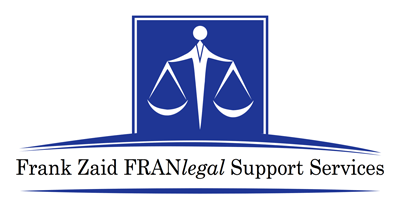Originally published in the Canadian Franchise Association Franchise Voice Fall 2016 updated on February 2, 2021by fezcanadmin
A number of years ago the International Franchise Association Franchise Relations Committee published a handbook entitled “Resolving Disagreements by Working Together: A Dispute Resolution Handbook for Franchisors and Franchisees”. In the Introduction to the handbook it was stated that “[R]esolving disagreements to the satisfaction of both franchisors and franchisees has become the hallmark of successful franchise systems.” That premise has equal, if not greater, application today.
Franchise disputes are on the rise for many reasons. We now have 6 provinces that have passed franchise legislation which give powerful rights to aggrieved franchisees in certain circumstances. Common law contractual claims are preserved. Class action legislation and contingency fees allow aggressive franchisee lawyers to initiate law suits with little risk to their clients. But to a franchisor litigation is disruptive, expensive and unpredictable. And it is very difficult to maintain positive franchise relations while there is ongoing litigation. It is therefore in the interest of both franchisor and franchisee to resolve disagreements before they reach litigation.
Experienced franchisors and legal counsel know that franchise disagreements or disputes are not necessarily rooted in legal issues. A prime source of franchisee unrest results from poor franchisor communications.
Many franchise disputes result from franchisee unprofitability. Both parties need to identify the underlying business issues and try to find solutions rather than ascribe blame. The diversity of franchise relationship issues and problems can lead to major disputes. Franchisors should analyze franchisee complaints and determine whether there may be a systemic problem. Franchisees may have differing expectations than what franchisors expect. Have the parties ever discussed the relationship and their responsibilities? Does the franchisee understand the effort required to be successful?
Successful franchise systems need to grow in numbers of franchisees and system sales. But growth often results in changes in the franchise relationship brought about by acquisitions, new management, and the withdrawal of the original founders. Franchisors must communicate changes to franchisees and allow them to absorb the effects of the changes.
Market conditions and new competition will inevitably lead to systemic changes. But nothing has affected franchise relationships and communications more in recent years than technology. While technology developments are intended to improve efficiency and operational information, franchisors are frequently guilty of introducing new technology too quickly and without adequate research. They need to communicate with the franchise community, give specific information on what is being introduced, the cost, and the expected results and obligations.
It is not uncommon that franchisee unrest may result from inconsistent treatment of franchisees. How often do franchisees complain that one franchisee is being favoured to the exception of others? Does the franchisor explain why there may be legitimate exceptions to the requirement for system compliance?
The logical way for franchisors to deal with possible disputes is to ensure that there are adequate programmes in place for early dispute resolution (EDR). These programmes can result in quick solutions and maintain or even enhance the franchise relationship. They can be operated at low cost, with minimal disruption to the franchise system, and provide an opportunity to resolve disagreements or disputes at a very early stage, often without the involvement of lawyers.
One such programme may be the use of franchisee mentors. A new franchisee is paired with an experienced franchisee, for a period of time, to assist in explaining franchise system operational matters and generally answer questions. Often the mentor will correct a new franchisee's misunderstanding about an operational matter before the problem becomes more acute.
Another programme used by some franchisors is an “executive hotline” which allows franchisees to contact a CEO or other high level management officer on a confidential telephone number to raise a concern or answer a question. The franchisor officer may delegate the issue to another person, but must be certain that it will be dealt with in a timely manner. There is no cost to the franchisee, and the matter must be kept confidential without repercussion to the franchisee. Often the matter may result in a system change.
As stated earlier, communications between a franchisor and its franchisees are often lacking. Franchisors can set up a number of programmes for better and more frequent communications. The programmes can be carried out by field consultants, through call centres, at regional or town hall meetings, via a system wide intranet, at conventions, and/or through surveys or questionnaires. The key is for the franchisor to be willing to listen to, appreciate, and respond to the concerns expressed by its franchisees.
Some franchisors have established peer groups or peer review panels to deal with franchisee disputes. They may be constituted formally with rules and procedures, or may be less formal. Peer groups are usually composed of a mixture of franchisees and franchisor management. However the program operates it must have buy-in and support from senior management. The peer group or panel may be a subcommittee of a franchisee advisory board or council (FAB) if one is established, and should have a gatekeeper to formulate and present issues to the group. The review process must be confidential and there should be periodic reporting to the franchisee body of the type of matters considered and the results.
FAB’s have become more popular in recent years. The effectiveness of a FAB will depend on its constitution, composition and representation. Most FAB’s have written by-laws or rules and procedures to prevent their operations from becoming avenues for individual complaints. FAB’S should consider major operational matters, new system developments, significant changes to the system, and matters that will require substantial cost to the franchisee. With the approval of a FAB to these types of matters, acceptance by the franchisee body is almost assured.
The final EDR program which franchisors should consider is the establishment of an independent franchise system ombudsman. The Canadian Franchise Association has a very successful ombudsman program in place, but it is limited by reason of available resources. An independent franchise system ombudsman programme is confined to the specific franchise system. It is funded solely by the franchisor at no cost to its franchisee. There must be commitment by franchisor senior management and acceptability by franchisees. A well-run ombudsman program should result in increased integrity and value for the franchise system and will frequently provide an early warning system of broader concerns. The ombudsman can operate on a full-time or as-needed basis. The ombudsman should operate under a written agreement with the franchisor as an independent contractor and not an employee of the franchisor. The selected ombudsman should have established credibility, experience within the franchise industry, and negotiation and alternative dispute resolution training. The ombudsman effectively operates as a go-between with the objective of resolving the disagreement or dispute whether it is raised by the franchisor or a franchisee. There must be a defined written process which is consistently followed and the franchisor should appoint a high level management representative who will be readily accessible to interact with the ombudsman. There are no repercussions to a franchisee that raises a matter with the ombudsman and there is no direct interaction between the parties. Independent ombudsman programs are becoming more popular in the United States with large franchise systems, but have not been widely used in Canada, most likely because they have not been understood or publicized. As in the case of other EDR programs, there should be regular reporting of the results of the program.
Finally, a word about mediation which is a more legalistic procedure and which requires the consent of all parties to the dispute. Many franchisors are providing for mediation in their franchise agreements or ancillary documents. However, mediation should not displace other EDR programs. It usually is a pre-condition to commencing litigation or arbitration (with some carve-out exceptions), and in some provinces mediation is required before a claim can be set down for trial. The parties can agree to mediate a dispute at any time whether or not the process is called for in the franchise agreement or another document.
Mediation has proven to result in a high success rate of settlement or negotiated solutions even though the process is non-binding and confidential. An independent facilitator (the mediator) is chosen by the parties to conduct the mediation according to defined procedures which can be modified during the mediation process. Mediation allows the parties the opportunity to hear the other side’s case without the time and cost of formal examinations for discovery.
In the case of franchise disputes, it is highly recommended that the mediator have broad franchise experience and an understanding of the business and operational aspects of franchise systems, and of course must have training and experience in alternate dispute resolution. Typically a mediator of franchise disputes will be a franchise legal expert, a respected former judge, or an experienced general commercial mediator.
Most mediation is conducted with legal counsel for the parties being present. However, client decision makers should also be present, prepared, informed and have authority to settle. As there are a number of established mediation organizations in most major centres, with prescribed rules and procedures, and private facilities, many mediations are conducted through these organizations. Mediation is an open process in which the parties analyse the issues, consider their goals, and discuss possible options. If a settlement is reached, the mediation should not adjourn until minutes of settlement are prepared and signed.
As can be seen from this discussion about EDR, there are many options open to franchisors and franchisees to try to resolve any disagreements or disputes at an early stage without litigation. In every situation good communications and respect for the other party will be paramount influences on the ability of the parties to come to a reasonable and mutually satisfactory resolution. Recall the quote at the beginning of this article: “[R]resolving disagreements to the satisfaction of both franchisors and franchisees has become the hallmark of successful franchise systems."
© Frank Zaid 2021


